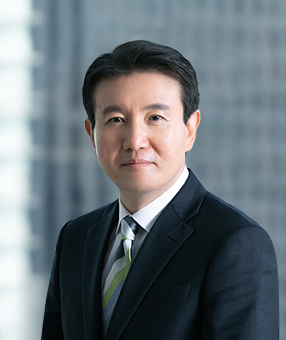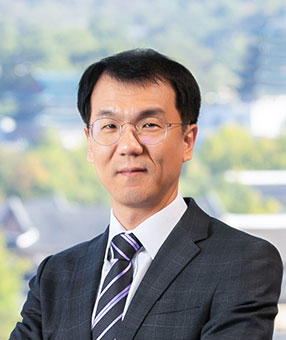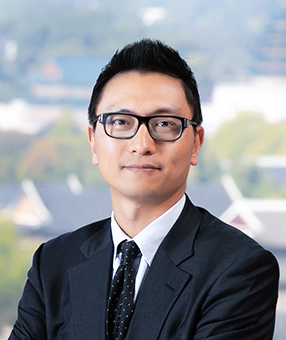On January 25, 2024, the Korean National Assembly passed major amendments to strengthen penalties for infringement of technology rights such as patents and trade secrets and to introduce a strong punitive damages award system. The changes are a response to criticism that domestic criminal penalties for infringement of technology rights in the past have been too lenient or the amount of damages awarded too small, and thus, owners of such rights have often failed to obtain meaningful results even after pursuing civil or criminal actions. The amendments are expected to more effectively deter infringement acts by providing a more robust legal framework for the enforcement of technology rights.
The amendments relate to the Act on the Prevention of Unfair Competition and Protection of Trade Secrets (hereinafter referred to as the “Unfair Competition Prevention Act”) and to the Patent Act. Key highlights of the amendments are as follows.
|
1.
|
Enhanced Punitive Damages for Intentional Infringement
The amendments to the Unfair Competition Prevention Act and the Patent Act (collectively, the “Amended Acts”) provide for imposition of punitive damages of up to five times the actual damages if infringing acts, including theft of ideas and misappropriation of trade secrets or infringement of patent rights or exclusive practice rights, are determined to be intentional. The Amended Acts are expected to pave the way for a more effective recovery of damages for right holders and tougher punishment for infringers. The punitive damages provision will apply to infringement acts occurring after the effective date of the Amended Acts. However, the damages provision also applies to acts that began prior to and continue after the implementation of the Amended Acts.
|
|
2.
|
Enhanced Criminal Penalties for Trade Secret Infringement
The amendments to the Unfair Competition Prevention Act strengthened penalties against corporations for unfair competition crimes and misappropriation of trade secrets. Previously, a corporation was fined the same statutory penalty amount as an individual, such as an employee of the corporation. With the amendments, however, a corporation can be fined up to three times the statutory maximum penalty that can be imposed for an individual, and the statute of limitations for corporations has been extended to ten years from the current five years. As a result, it is expected that more effective prevention and punishment will be possible against systematic corporate offenders.
In addition, the amended Unfair Competition Act provides for the confiscation of goods that infringe the trade secrets of others or facilitate unfair competition. Accordingly, infringing goods and the equipment used to manufacture infringing items can be confiscated expeditiously through criminal proceedings without a need for separate civil proceedings, thereby decreasing the likelihood of secondary infringement and damages.
Further, the amended Unfair Competition Act prohibits unauthorized acts that damage, destroy, or alter the trade secrets of others, and provides that a person who engages in prohibited conduct for the purpose of obtaining unfair profit or causing harm to an owner of a trade secret shall be punished by imprisonment for up to ten years or a fine of up to KRW 500 million. In particular, the amended provision provides the statutory basis for the punishment of acts that damage, destroy, or alter trade secrets through hacking, which had not been punishable under the existing Unfair Competition Prevention Act.
|
|
3.
|
Introduction of Corrective Order Mechanism by the KIPO and Improvement to Operational Processes
The amended Unfair Competition Prevention Act introduces a mechanism for issuance of corrective orders by the Commissioner of the Korean Intellectual Property Office (“KIPO”) against those who engage in acts of unfair competition. Failure to comply with a corrective order may result in the details of the violation being made public and an imposition of fines (new Articles 8 (1) and 20 (1) (2)).
Procedurally, the amendments also provide grounds for parties to request access to and obtain copies of material related to administrative investigations by the KIPO (new Article 7 (2)), and establish procedures to safeguard trade secret information contained within investigative records, such as the ability of the court to order restrictions on the scope of the records and individuals who may access the records (new Article 14 (7)).
|
With the implementation of the amendments to the Unfair Competition Prevention Act and the Patent Act, it is expected that damages awards for intentional infringement of patent rights and trade secrets will increase significantly, thereby reducing the likelihood of the rights owners avoiding litigation based on the belief that sufficient damages recovery to cover their litigation costs and efforts will not be possible. In addition, the amendments are also expected to more effectively deter infringement acts, as fines for corporate offenders have increased and criminal penalties for acts that damage or alter trade secrets have also been strengthened.
On the other hand, as taking proactive legal measures by rights holders becomes possible due to the strengthened penalties against infringing parties, the risks of potential infringers in responding to infringement allegations and the consequences of an intentional act of infringement have increased substantially. Moreover, the strengthening of criminal penalties against corporate offenders involved in trade secret cases has increased the risk of severe penalties. Accordingly, the amendments suggest the need for companies to introduce or reassess their compliance system related to technology infringement.
The amended Unfair Competition Prevention Act and Patent Act will be sent to the Presidential Office for promulgation within 15 days, and will come into force six months after promulgation.
[Korean Version]







